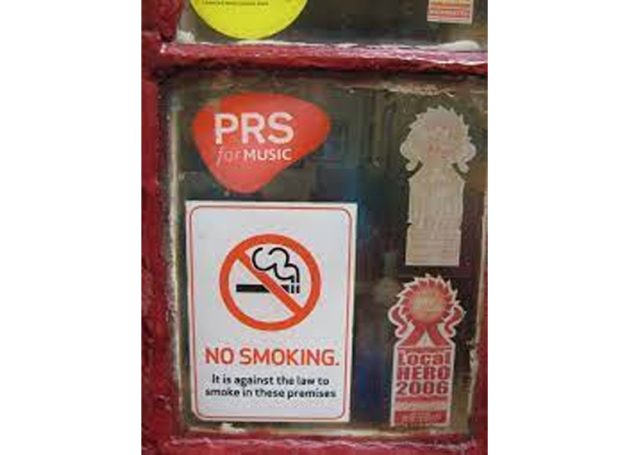Here’s how far people want the government to limit their freedoms for the sake of the planet – new research
PTI, Feb 18, 2022, 9:21 AM IST

An opinion poll carried out just before the 2021 UN climate conference COP26, found that 79 per cent of UK respondents “would accept stricter rules and environmental regulations” imposed by their governments. And yet 44 per cent “don’t think [they] really need to change [their] habits”.
This might suggest that few people are really willing to make significant lifestyle changes to save the planet. Alternatively, perhaps people simply understand the limited difference that personal behaviour can make in a country where 87 per cent of home heating systems use gas and flights are significantly cheaper than trains. Rather than habit change, these issues require government attention.
In fact, my research at CREDS suggests that members of the UK public are willing to have their freedom of choice limited for the sake of the environment.
Behaviour change is a major focus of UK government climate policy. This approach relies on providing information on sustainability, then counting on the public to make “smarter choices”. But what really prompts such choices? For example, the high cost of electric vehicles has put many off buying them in the past, but their sales rocketed in 2021, when the UK government’s ban on selling fossil-fuelled cars by 2030 was announced. Several of my interviewees stated that they were particularly considering buying EVs in the light of this proposed ban.
As I suggested to a House of Lords committee recently, an announcement on phasing out gas central heating might have a similar effect. It could push consumers to buy, and producers to manufacture, more electric heating systems.
In the past, other major behaviour changes that governments have accomplished – like cutting smoking and introducing seatbelts in vehicles – involved introducing initially unpopular regulation, not merely giving advice.
But the government still relies on consumer choice. A recent report on decarbonising heat in homes concluded that asking households to pay £10,000 or more to replace their home heating systems poses “a major challenge”, one that could be resolved by offering subsidies and imposing bans.
A pattern of avoiding responsibility and regulation is clear here, underlined by the government’s first principle of its net zero strategy being to “work with the grain of consumer choice” rather than to shape available options.
Our research aimed to ascertain how much of people’s energy consumption it might be reasonable to target and trim through government intervention.
When I interviewed people from 30 high energy-consuming households about their lifestyles, many justified their levels of energy use – including owning large houses with multiple appliances and expensive cars and taking up to 60 flights a year – as pursuing the “good life”.
A colleague and I also ran four workshops with people who had different levels of energy consumption. We discussed the fairness, effectiveness and acceptability of four policy interventions to reduce high energy use: rationing, structural change, economic (dis)incentives, and encouraging behaviour change through providing information and advice.
Rationing would involve imposing strict allowances for energy use, miles travelled or trips taken. Structural change means the government would provide low, and remove high, carbon options. And economic measures would change the price of goods and services to help alter consumer decisions.
Although workshop participants did not arrive at a clear consensus, overall people preferred the structural change approach. Economic measures were suggested as a support, and rationing was seen as a last resort. Asking for voluntary behaviour change was seen as only likely to be effective after the consumer environment had already been altered.
In particular, participants felt that restrictions were reasonable to tackle excess, luxury-oriented consumption. Frequent flying for multiple holidays, business travel and excessive car use were identified as fair targets.
However, targeting car use now through congestion charges and road pricing was seen as problematic. As one interviewee commented, “You can’t change people’s behaviour until [alternative] structures are in place.” These structures might include serious government investment in public transport to (ideally) make it free and accessible to all.
Perhaps surprisingly, even some of our high energy-consuming interviewees called for their own flights, expensive cars and driving to be taxed more highly. Others stressed: “If you put a tax on something … people that can afford it can still do it. It just hits the poorer people.” In other words, “If there’s going to be some kind of restriction, it has to be across the board … everyone has to be cut off at the same point.” Some expressed frustration at consumer freedoms, one saying: “Why are we allowed to buy things that are so poor in their energy ratings in the first place?” And one participant concluded: “We all have to infringe our own liberties in order to make this work, because we’ve been given the freedom: and look where we are.” Evidently, some are happy to have their own consumer freedoms limited. These findings reflect what policy thinktank Demos found when they asked people to prioritise a set of UK climate change committee policies supporting Paris agreement commitments. Between 84 per cent and 96 per cent of participants supported policies including flight levies, carbon taxes, restricting cars in cities and adding speed limits: all requiring strong government action that penalises or limits choices.
Similar findings have emerged from other UK research groups, as well as reflecting results from the UK’s Climate Assembly.
Our findings confirm that when the public discuss policy options, they tend to conclude that the government should accept responsibility for imposing system change if they want the “voluntary” behaviour change they expect from the public.
(By Noel Flay Cass,Research Fellow in Energy Demand Behaviour, University of Leeds Leeds for The Conversation)
Udayavani is now on Telegram. Click here to join our channel and stay updated with the latest news.
Top News
Related Articles More

China trying to undermine Tibet’s identity, want to make world aware about it: Tibetan girl who was jailed for protesting

Don’t blame Dubai’s freak rain on cloud seeding

What role does genetics play in breast cancer? How can genetic testing help with early breast cancer diagnosis?

From Orbit to Earth: ISRO’s Contributions to Understanding Himalayan Glacial Shifts

Modi Supports Philippines with BrahMos Missiles in China Sea Dispute
MUST WATCH
Latest Additions
Kannur: Five persons including a child killed in road mishap

PM Modi to address poll rally in Telangana today

Manufacturing licence of 10 Patanjali’s Divya Pharmacy products suspended

Cong’s Indore candidate withdrew nomination after ‘threats and torture’, claims Patwari; slams BJP

Delhi: Former MLA lodges plaint after receiving ‘death threat’ from Khalistani extremist
























